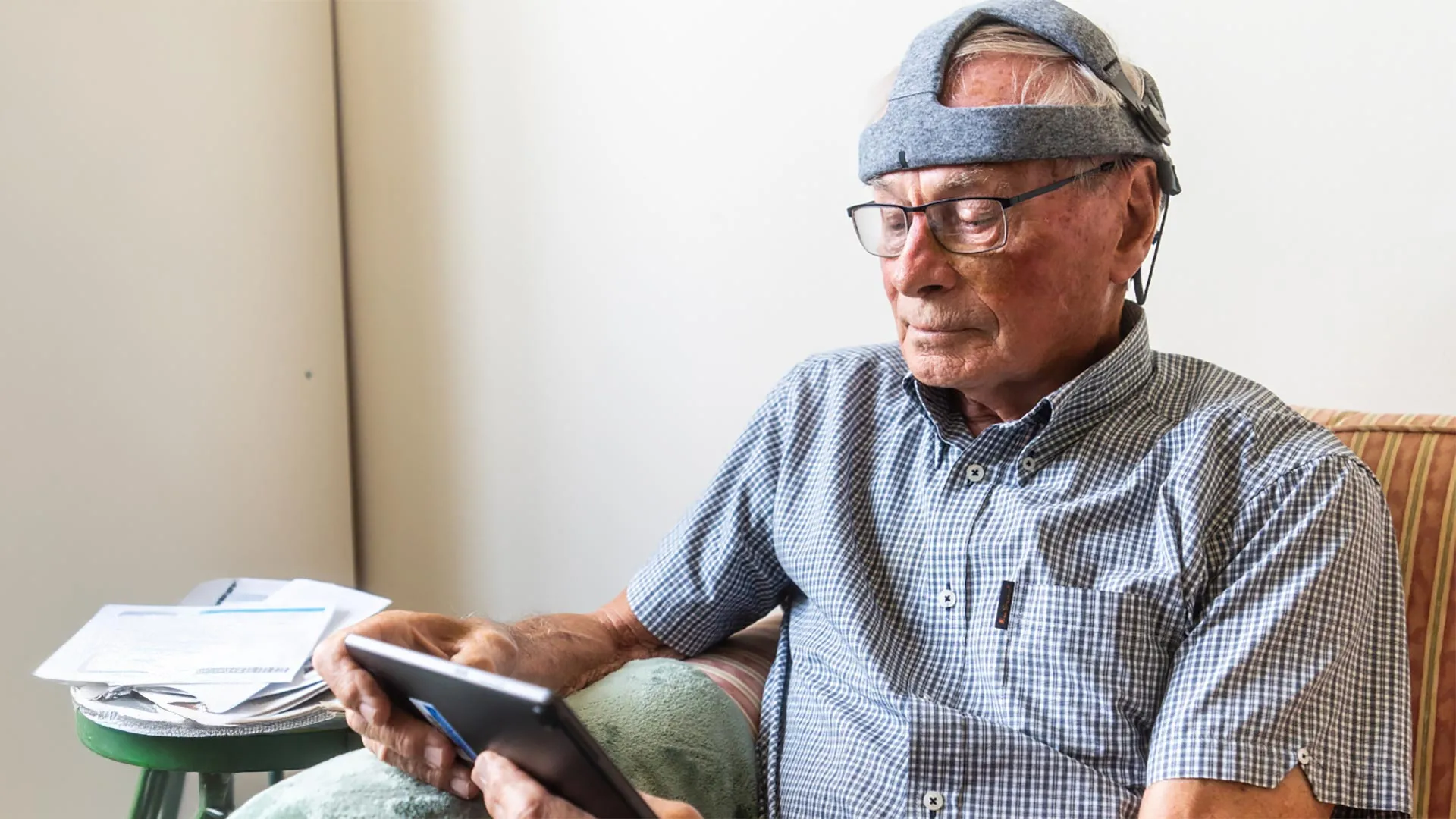A 3-minute brainwave test could spot Alzheimer’s years before symptoms
A quick brainwave test called Fastball can detect early signs of Alzheimer’s at home, opening the door to faster diagnoses and treatments.
- Date:
- September 4, 2025
- Source:
- University of Bath
- Summary:
- Scientists at the University of Bath have developed a simple three-minute brainwave test called Fastball EEG that can detect memory problems years before Alzheimer’s is typically diagnosed. Unlike traditional memory tests, it passively records brain responses to images and has now been proven effective in people’s homes. With breakthrough Alzheimer’s drugs working best in early stages, this low-cost, accessible tool could transform early detection and treatment.
- Share:

A simple brainwave test developed at the University of Bath has been shown to detect signs of memory impairment linked to Alzheimer's disease years before clinical diagnosis is typically possible.
Published in the journal Brain Communications the study by academics from the University of Bath and the University of Bristol, reports that Fastball EEG, a three-minute passive test that records electrical activity in the brain while participants view a stream of images, can reliably identify memory problems in people with Mild Cognitive Impairment (MCI) -- a condition that can lead to Alzheimer's. This follows the group's previous study in 2021 that demonstrated Fastball was sensitive to memory impairment in Alzheimer's disease.
Crucially, the research team has demonstrated for the first time that the test can be administered in people's homes, outside of a clinical environment. Researchers say this opens the door to wider screening and monitoring using accessible, low-cost technology.
With the development of the breakthrough Alzheimer's drugs, donanemab and lecanemab, an early diagnosis is more important than ever before. The drugs are clinically proven to be the most effective in the early stages of Alzheimer's. Despite this, in England, it is estimated that as many as 1 in 3 people do not currently have a dementia diagnosis, delaying treatments, support and research opportunities to tackle the condition.
The study was led by Dr George Stothart, a cognitive neuroscientist in the Department of Psychology at the University of Bath. He said:
"We're missing the first 10 to 20 years of Alzheimer's with current diagnostic tools. Fastball offers a way to change that -- detecting memory decline far earlier and more objectively, using a quick and passive test."
How the test works
Fastball is a passive EEG test that monitors the brain's automatic responses to images -- without requiring participants to follow instructions or recall information. This makes it more objective and accessible than traditional memory tests.
Key findings:
- Detected early memory issues in people with MCI likely to develop Alzheimer's.
- Delivered reliable results in real-world home settings.
- Showed reduced memory responses even in patients who later progressed to dementia.
Researchers say Fastball could be scaled for use in GP surgeries, memory clinics, or at home -- helping deliver earlier, more accurate diagnoses.
Dr Stothart added: "There's an urgent need for accurate, practical tools to diagnose Alzheimer's at scale. Fastball is cheap, portable, and works in real-world settings."
The study was funded by the Academy of Medical Sciences and supported by dementia research charity BRACE.
Chris Wiliams, CEO of BRACE Dementia Research, said: "Fastball is an incredible tool that could offer anyone who, for whatever reason, cannot access a dementia diagnosis in a clinical setting.
BRACE has been supporting the development of Fastball for several years, and we are excited to see what Dr Stothart's team will achieve over the next few years with ongoing support from the charity."
Story Source:
Materials provided by University of Bath. Note: Content may be edited for style and length.
Journal References:
- George Stothart, Sophie Alderman, Oliver Hermann, Sam Creavin, Elizabeth J Coulthard. A passive and objective measure of recognition memory in mild cognitive impairment using Fastball memory assessment. Brain Communications, 2025; 7 (5) DOI: 10.1093/braincomms/fcaf279
- Christopher H. van Dyck, Chad J. Swanson, Paul Aisen, Randall J. Bateman, Christopher Chen, Michelle Gee, Michio Kanekiyo, David Li, Larisa Reyderman, Sharon Cohen, Lutz Froelich, Sadao Katayama, Marwan Sabbagh, Bruno Vellas, David Watson, Shobha Dhadda, Michael Irizarry, Lynn D. Kramer, Takeshi Iwatsubo. Lecanemab in Early Alzheimer’s Disease. New England Journal of Medicine, 2023; 388 (1): 9 DOI: 10.1056/NEJMoa2212948
Cite This Page: